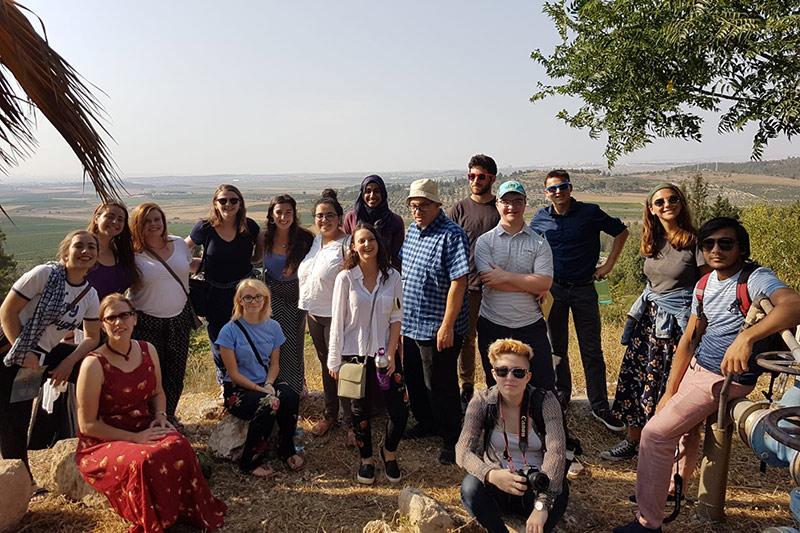Middle East peace program at Tulane awarded second $1 million grant
A Tulane University program that teaches students about the Middle East peace process will continue for another four years thanks to a second $1 million grant from Stacy Mandel Palagye, a 1983 Newcomb College graduate, and her husband Keith Palagye.
The gift will fund the Stacy Mandel Palagye and Keith Palagye Program for Middle East Peace though the 2021-22 academic year. The couple is supporting the Tulane School of Liberal Arts program through the auspices of the Morton and Barbara Mandel Family Foundation.
“This program, which blends academic and experiential learning, gives Tulane students a unique, up-close perspective on the Arab-Israeli conflict, one of the most crucial, complex and far-reaching issues of our times,” Tulane President Mike Fitts said.
The five-week summer experience, which began in 2015, gives 15 Tulane students an immersion in the dynamics of the Arab-Israeli conflict through classroom study and hands-on experience in Israel and Jordan. The program begins on Tulane’s campus with three short courses on conflict resolution, modern Middle East history and cultural representations of Arab-Palestinian relations. The group then travels to Israel for the last three weeks of the program and visits Jordan. The program will continue to offer exposure to the daily lives of Israelis and Arabs in order to provide a balanced perspective on this deeply complex, historically rooted problem.
“The program has turned us from amateurs into professionals with deep understanding of the players, the countries, the region and the history,” said program co-director Brian Horowitz, Sizeler Family Endowed Professor of Jewish Studies.
Participants include both Muslim and Jewish students as well as those aspiring for careers such as diplomats, human rights lawyers, journalists and foreign policy experts.
“The quality of the students is really high,” said co-director Christina Kiel, a professor of practice in political science. “But we’re not here to change anyone’s mind. We just want students to look deeper into the issue, to have a more sophisticated opinion. You don’t have to come out of it knowing all the answers.”
Taylor Nadherny, a 2017 participant, said the program is an ideal opportunity for students who want to challenge their preconceived notions and gain a deeper understanding of the Arab-Israeli conflict. “It is hard for me to explain just how deeply my time abroad impacted my growth as a critical thinker,” he said.

